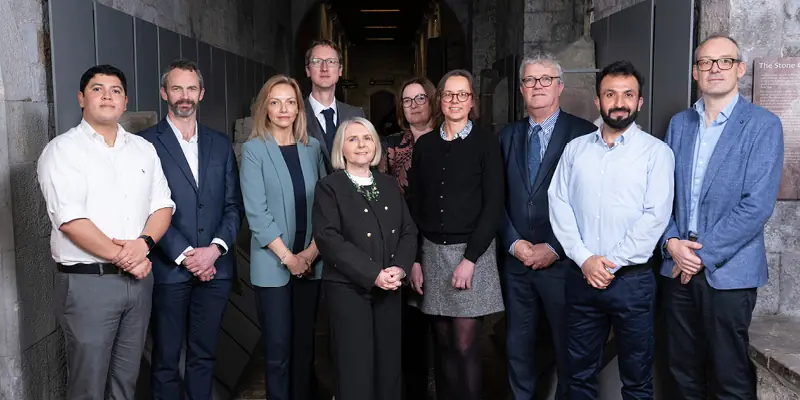Eli Lilly and Company Supports Pioneering UCC Biodiversity Conservation Research 20 Feb 2025

Eli Lilly and Company is collaborating with University College Cork (UCC) experts on innovative research on the effects of translocation and climate change on indigenous grassland species.
The new Lilly Limerick biopharmaceutical manufacturing campus has moved, or translocated, the population of a rare meadow barley species (Hordeum secalinum) from one part of the site to another, under license from the National Parks and Wildlife Service (NPWS).
Translocating grassland sods helps conserve species like meadow barley and supports biodiversity, making grasslands more resilient to climate related stress. These biodiverse grasslands also aid in carbon sequestration, flood protection, and support pollinators.
This project will study how translocation and climate change impact the ecology of meadow barley and other grassland plants. By understanding these impacts, strategies can be developed to conserve meadow barley and maintain biodiversity in grasslands.
Biodiversity research at UCC is predominantly conducted by staff and students from the School of Biological, Earth & Environmental Sciences (BEES) and the Environmental Research Institute.
The project team will be led by Professor Astrid Wingler and Dr Markus Eichhorn from the School of BEES, who are also principal investigators in the Environmental Research Institute (ERI) and the Co-Centre for Climate + Biodiversity + Water.
This collaborative project includes research undertaken by UCC PhD student - Johan David Reyes Chavez, and Master of Research student - Ijlal Haidar to study work being done to conserve this valuable part of Irish biodiversity.
Dave Riordan, Vice President, Site Head, Eli Lilly Limerick said: “We are thrilled to work with University College Cork on this important project. The translocation of meadow barley at our Limerick site underscores our commitment to environmental stewardship and biodiversity. This collaboration is not only aligned with our 2030 environmental goals but also strengthens our ties with the academic community, fostering innovation and sustainability. By working together, we can leverage cutting-edge research and local expertise to create a more resilient ecosystem and contribute to the preservation of native species.”
Kerry Bryson, CEO of Cork University Foundation commented: “Impactful sustainability research tackling emerging global challenges is a key strategic priority for University College Cork. Research like this is transformative, furthering our understanding of climate change and biodiversity in the Irish context. This collaboration with Lilly is facilitated by Cork University Foundation, UCC, and the Foundation is grateful to Lilly for enabling building a talent pipeline and supporting strategic study”.
Professor Sarah Culloty, Head, College of Science, Engineering and Food Science, UCC said: "I would like to thank Lilly Limerick for their support of our research and our students, Johan David Reyes Chavez and Ijlal Haidar. The conservation of meadow barley and the preservation of biodiversity in grassland ecosystems is a critical issue, and we are looking forward to working with Lilly on this important project".
Professor Astrid Wingler, School of Biological, Earth and Environmental Sciences and the Environmental Research Institute, UCC commented: “This research supported by Lilly enables us to be part of an important conservation project: By investigating the effect of climate change on meadow barley and the wider grassland community, we intend to develop methods that secure grassland biodiversity into the future”.